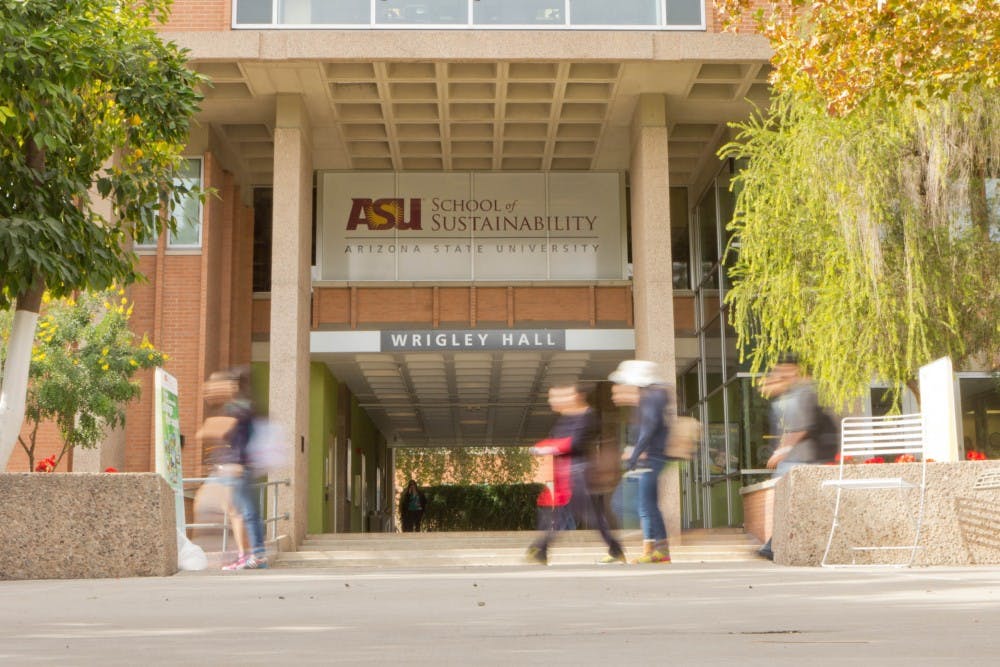As the 2020 presidential election comes closer, one of the key issues that ASU students should care about is climate policy.
Washington state Gov. Jay Inslee ran an entire presidential campaign centered on tackling climate change, releasing over 200 pages of comprehensive climate policy in the process.
His centralized focus on climate policy alone makes Inslee an ideal candidate for president —especially given that climate change has repeatedly been cited as the second highest Democratic priority, with health care as number one.
Although Inslee has since dropped out of the 2020 race, his approach to climate change needs to be accepted and fulfilled by students.
Inslee’s campaign platform was a series of well developed pages of policy proposals aimed at an aggressive 10 year plan to combat climate change in the most comprehensive and beneficial way possible.
The plan was split into five parts, aimed at getting America to 100% clean energy invested $9 trillion over 10 years. He also had plans to restructure foreign policy around climate change and get rid of the fossil fuel industry.
The last piece of his plan was transitioning to a clean economy, meaning coal workers and other fossil fuel jobs would be replaced.
Not only were these plans ambitious, they were also extremely detailed and outlined the agencies and actors in all cases. They provided a holistic view of the fight against climate change with a focus on climate justice, most notable of which was ensuring that no worker or family was left behind in the transition.
Inslee’s climate plan encompassed some of the thought of ASU’s sustainability platform.
“ASU focuses more on incorporating environment, society and economics into the platform of the way they teach sustainability,” said Kylie Vacala, USG senator for the School of Sustainability.
Inslee only received credit for his policy and plans once he was out of the race, with many candidates sitting down with him to discuss their climate policy moving forward. During the CNN Climate Town Hall, Inslee was mentioned so much that Vox even declared him a "winner" of the night.
Inslee was the presidential candidate that America, especially us as college students, need right now. Climate change is the most urgent issue of our time as a report from the IPCC along with a U.N. study both found that climate change and its effects would be irreversible 11 years from now if no action is taken immediately.
This urgency demonstrates that the next president must put climate change at the forefront of their policy. Unfortunately, no remaining candidate has come as close to Inslee in their climate legislation, instead prioritizing other issues.
There are a few ways that ASU students can take their future into their own hands. The first is through pushing candidates to talk about climate change by donating or volunteering at organizations like the Sunrise Movement or the Sierra Club.
The second way, which is much closer to home, is to utilize the University's resources and get involved with environmental groups on campus such as the Sustainability Alliance at ASU, Greenlight Solutions and Nature at ASU.
“A great way to start is going to the School of Sustainability's website because there are always amazing guest speakers and students petitioning for some kind of sustainable practices," Vacala said.
While Inslee may not have gathered the momentum he needed to be president, his platform was one that is of utmost importance, especially for ASU students.
Students should continue what Inslee started and transcend the conversation of climate change from politics to the dinner table. Inslee’s plans should not be viewed with skepticism but instead with optimism of the future they can give humanity.
Reach the columnist at alshah2@asu.edu or follow @aasheeni on Twitter.
Editor’s note: The opinions presented in this column are the author’s and do not imply any endorsement from The State Press or its editors.
Want to join the conversation? Send an email to opiniondesk.statepress@gmail.com. Keep letters under 500 words and be sure to include your university affiliation. Anonymity will not be granted.
Like The State Press on Facebook and follow @statepress on Twitter.




